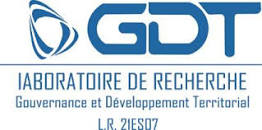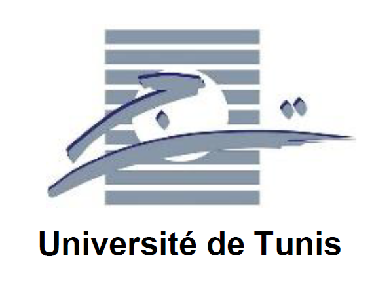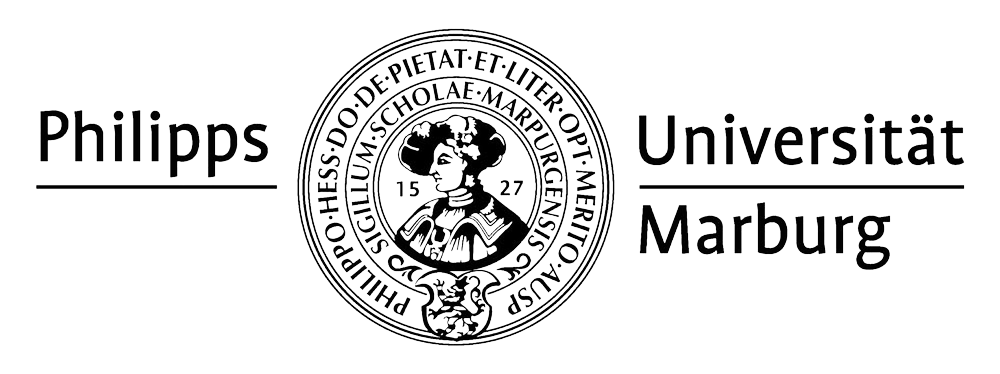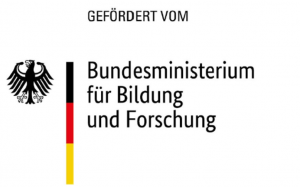Extractivism Flying Academy Tunisia 2023 – International Conference






Conference Theme
The Maghreb and Middle East region has been experiencing profound political and economic transformations and reconfigurations in recent decades. Firstly, due to the socio-political convulsions and massive protests of the „Arab Spring“ of 2011. Mobilizations that in some cases culminated in revolutions and the deposing of heads of state, as in the case of Egypt and Tunisia, while in others they triggered some modest reforms, as was the case in Jordan and Morocco, but also civil wars as in the case of Yemen and Libya. Later, in 2019, another round of protests was triggered in Sudan, Algeria, Lebanon and Iraq, where socio-economic malaise was the main cause.
Consequently, the economic dimension has also changed significantly in the last decade. While socio-political crises were largely provoked by economic problems, the global recession is now affecting national economies on an undifferentiated basis. The Maghreb countries lack the tools to confront the crisis. Firstly, the Covid-19 pandemic has hit the Maghreb markets hard and the already limited labor supply has suffered. Secondly, the war in Ukraine has caused inflation and instability in these countries. In addition, the short supply of raw materials in Europe and climate change raise important questions. For example, socio-environmental disturbances, as the European „Green Deal“ poses major energy challenges, an issue that must also be addressed in the Maghreb. But, at the same time, it also creates uncertainties, in a context of war in which this region also has significant advantages to gain. Now, although changes in economic strategies are observed in different regions of the world, the Maghreb countries do not seem to have any strategy to overcome the rentier logic. However, despite these major transformations, the development model previously adopted, in other words, extractivism or commodity rentierism, has remained intact.
The extractivist and rentier model has brought stability to authoritarian regimes and restored the status quo in many of these states. This stability can also be observed in the political behavior of the main interest groups: the middle classes. This stability was threatened as soon as these States began to change the way they exploited and managed their subsoil resources in the 1990s, as a consequence of the reforms imposed by the new context of globalization: a multidimensional crisis emerged in these territories.
Extractivism is not only understood as the extraction of raw materials, production or export, but is also linked to distributive aspects. However, in the case of the MENA region in general and the Maghreb in particular, these are rentier middle classes and not market-oriented middle classes in Weber’s sense. Since independence, political leaders and governments have associated increased revenues from the export of raw materials with economic and social development. This is a myth because extractivism is risky (prices are volatile), a threat to nature (oil spills, deforestation, etc.) and this model is contested (social movements against extractivism). In short, the concept of extractivism includes civil society and different actors, conflicts and social movements. On the other hand, the concept of the rentier state includes states, their institutions and the constellation of actors that gravitate around them, as well as classes (the middle class plays a central role).
This raises a number of questions on the socio-political reconfigurations of class, the interweaving of social and income orders in the Maghreb region, but also on the social and environmental crises of the territories. In a first dimension, we would like to understand the behavior of the middle classes in the past, at present and in the years to come. We would also like to understand the coalitions and groups that form within the middle class and with the middle class. Is the rentier model a stable model or has it undergone visible transformations in the Maghreb countries? Is this model observed in the same way in the countries of the region or are there interesting contrasts? The main question is whether the rentier middle classes are willing to support projects such as the Green Deal. In the second dimension, it is a question of analyzing the effects of globalization and the reforms imposed on the modes of extraction in the territories of „extraction“ by focusing on the multidimensional crises of these territories (environmental, social and economic).
From these elements, innovative approaches to answer these questions can be observed according to the different contexts of the Maghreb region, thus deepening regional similarities as well as comparisons between the different countries. Therefore, this international conference wishes to address these questions by focusing mainly on actors and territories. Actors such as the middle classes that produce the persistence of the rentier and extractivist model, as well as other relevant actors that, on the contrary, seek its transformation. But also the territories (mining, oil, forestry…) that are going through a structural crisis at all levels. In this way, we will observe the new configurations that emerge in this new cycle.
Conference Program
24 de Octobre 2023 : Bibliothèque nationale de Tunisie
9:30-10-30 | Welcome Session
- Ben Jelloul, Mourad & Ouaissa, Rachid: Ouverture
- Université de Tunis (Président de l’Université)
- L’équipe du projet Extractivism.de (Burchardt, Hans-Jürgen)
10.45-11:45 | Keynote
Ben Jelloul, Mourad (Université de Tunis- LR GDT)
Lunch
13:30-15:30 | Panel 1 | Green Extractivism, Energy Transition, and New Rents
Chair: Ouaissa, Rachid (Phillips-University of Marburg)
Discussant: Warnecke-Berger, Hannes (University of Kassel)
- El Bazzim, Rachid (L’Université Ibn Zohr d’Agadir): La transition énergétique du Maroc
- Elaglia, Wissem Hiba (Ecole superieur de l’économie Oran): Une analyse comparative de la transition énergétique en Algérie et en Tunisie : défis et perspectives
- Hamitouche, Youcef (University of Algiers 3): EU and the global energy transition: The case of Desertec and South 2 corridor projects as a renewable energy source for Europe in North Africa
- Ferré, Nathalie (Sorbonne Nouvelle, Université Paris 3) & Bouzagany, Aron (University of Natural Resources and Life Sciences, Vienna): A green future or transnational green extractivism? Studying Tunisia’s contentious energy transition
- Bonci, Alessandra (Arnold-Bergstraesser-Insititut Freiburg) & Wagner, Philipp (University of Freiburg): Materiality of Infrastructure and Energy Dreams: ELMED and TuNur in Tunisia
16:00-18:00 |Panel 2 | Class, State, and Power
Chair: Qrirou, Younes (Phillips-University of Marburg)
Discussant: Ponce Lara, Camila (Phillips-University of Marburg)
- Bellout, Azzedine (Université de Bouira, Algérie): La classe moyenne en Algérie : liens étroits avec l’économie rentière et la jeunesse fragilisée
- Bellal, Samir (Université de Tizi-Ouzou): Du rôle des acteurs dans la dynamique institutionnelle en Algérie
- Taleb Heidi, Moustapha (Centre de Recherches sur l’Ouest Saharien): Les syndicats de secteurs extractifs (Mines et Pèche) : Quels rôles dans les transformations sociales en Mauritanie. Une étude comparative de 2021.
- Selim, Chena (Sciences Po Bordeaux): The Algerian Middle Class in the Middle of a Class Struggle?
- Cerioli, Luíza (University of Kassel): Developmental vs. political ambitions: linking international environment, political coalitions and popular forces to grasp the persistence of extractivism in Algeria and Venezuela
Dinner (Restaurant Dar Belhaj Medina de Tunis)
25 de Octobre 2023 : Université de Tunis, Faculté des Sciences Humaines et Sociales- Salle Salah Guermadi
9:00-11:00 | Panel 3 | Re-negotiating Extractivism: Drivers of Change
Chair: Ramos, Rebeca (University of Kassel)
Discussant: Cerioli, Luíza (University of Kassel)
- Robert, Diane (Université Paris 1): Le modèle de développement tunisien à l’épreuve des territoires – des contradictions aux mobilisations
- Hechmi, Anouar (University of Manouba-LR GDT): Ports and extractivism of the mineral resources of the Gafsa Basin
- Christel, Lucas (San Martín National University, Agentina) & Qrirou, Younes (Philipps-University of Marburg): The Politics of Extraction in Latin America and the Maghreb
- Alonso-Fradejas, Alberto (University of Wageningen): The Multi-Dynamic Politics Framework for the analysis of extractivist politics “in breadth and depth”
11:15-13:45 | Panel 4 | Extractivism, Crisis, and Resistance
Chair: Ben Jelloul, Mourad (Université de Tunis- LR GDT)
Discussant: Qrirou, Younes (Phillips-University of Marburg)
- Hajer, Chakroun (Université de Tunis- LR GDT): Extractivisme et instabilité politique dans le bassin minier de Gafsa
- Jaziri, Brahim (Université de Tunis- LR GDT): De l’espace nuisible à la résilience post-extraction : vers une réhabilitation innovante des carrières dans le Grand Tunis
- Gluhbegovic, Rebeka (Philipps University Marburg): Views from below: What does phosphate extractivism mean for people living in Gafsa?
- De Facci, Damiano (IRMC Tunis): Les reconfigurations de l’économie locale à Sfax : les problèmes de la gouvernance et du droit à la ville dans un territoire en crise
Lunch
15:00-17:00 | Panel 5 | Extractivism, Land, and Agriculture
Chair: Burchardt, Hans-Jürgen (University of Kassel)
Discussant: Warnecke-Berger, Hannes (University of Kassel)
- Thyen, Kressen (University of Bremen): Limits to resource sovereignty. Extractivism and rural protests in the Maghreb
- Gómez, Liliana (University of Kassel): Critical ecologies. Aesthetic reconfigurations of the agrarian past of the landscapes in the Middle East
- Ponce Lara, Camila (Philipps University Marburg): The Role of Green StartUps in the Ecological and Energy Transition in Tunisia and Chile
- González, Lucas (San Martín National University): The Politics of Extraction: Varieties of Mining Deals in the Lithium Triangle
17:00-18:00 | Final Discussion
- L’equipe de Extractivism.de
- L’equipe de l‘Université de Tunis
Contact:
Conference Venue
Bilbiothèque nationale de Tunisie
1008, Boulevard du 9 Avril 1938, Tunis
24 de Octobre 2023
Université de Tunis
Faculté des Sciences Humaines et Sociales de Tunis
Salle Salah Guermadi
94 Boulevard du 9 avril 1938, Tunis
25 de Octobre 2023